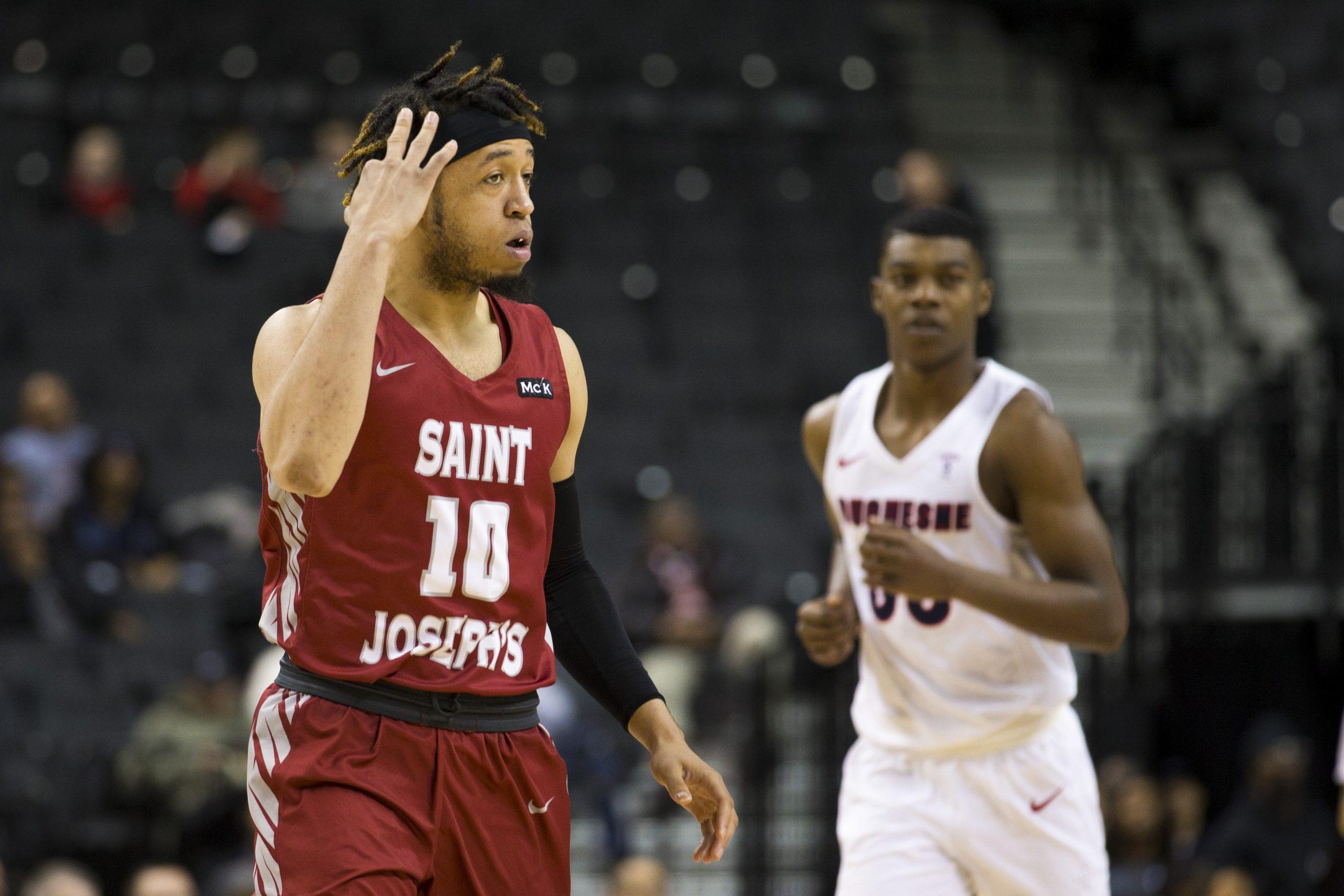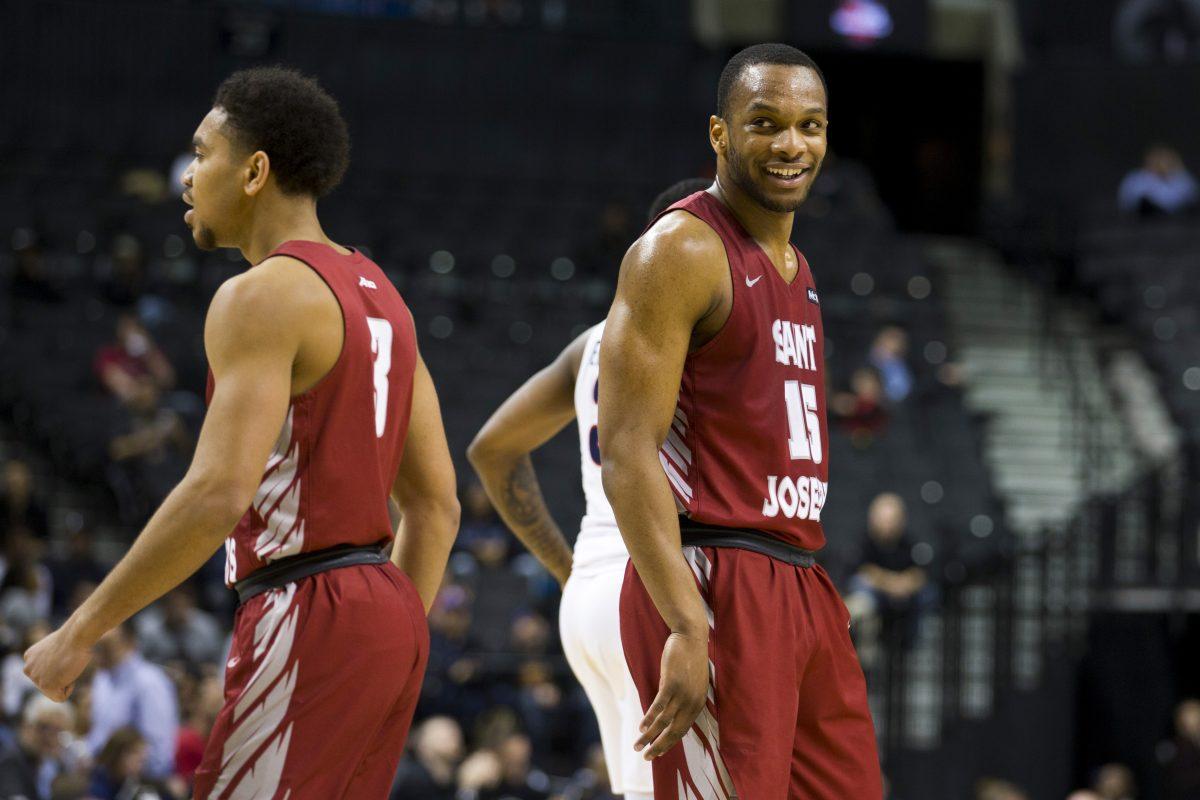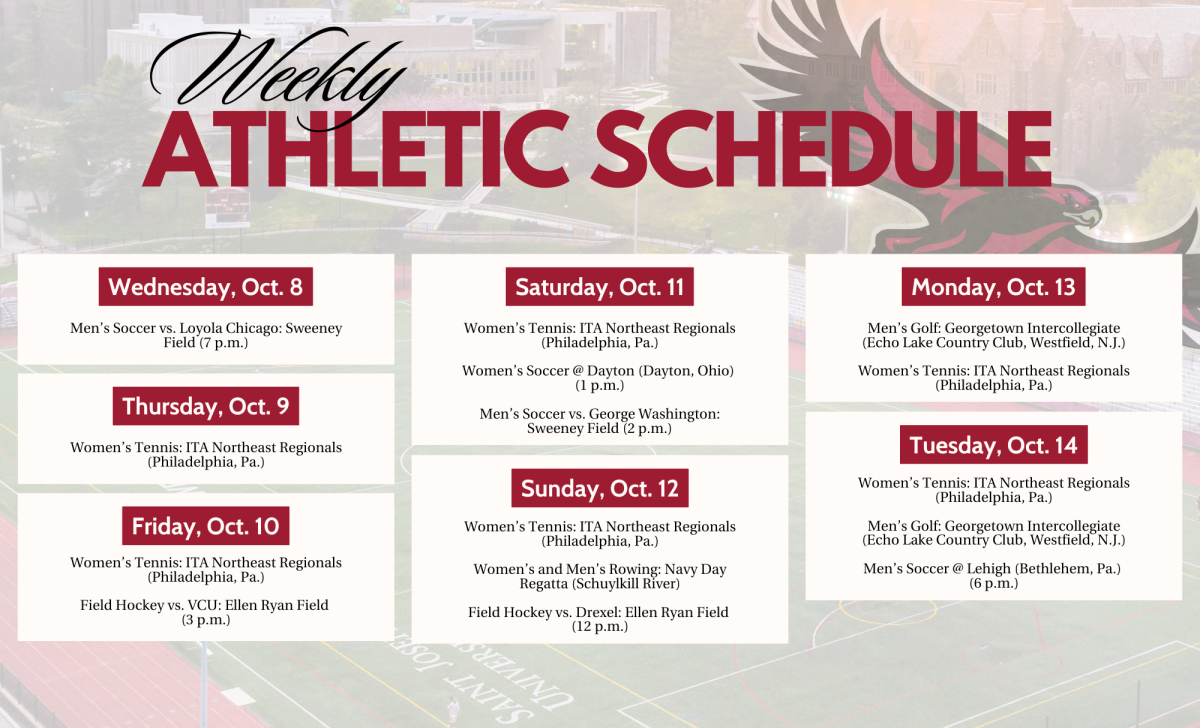The St. Joe’s men’s basketball team lost 70-60 to Davidson College in the quarterfinals of the Atlantic 10 Tournament on March 15.
This loss came one day after the Hawks beat Duquesne University 92-86 in the first round of the conference tournament.
Senior guard Chris Clover said the first game against Duquesne brought on fatigue, which contributed to the team’s tired legs and caused issues in terms of executing technical basketball plays.
“We didn’t necessarily feel tired during play, just due to adrenaline in the moment,” Clover said. “Looking back, Davidson had fresher legs, and with us being a little tired, it contributed to shooting poorly and making poor decisions from three.”
Head Coach Phil Martelli said players discussed their level of exhaustion in the locker room at halftime.
“These guys talked about playing until they were exhausted, and that’s what they did,” Martelli said during his press conference following the game. “They just didn’t play well enough.”
Redshirt junior guard Lamarr Kimble said that while the team was tired, it’s not an excuse for the end score.
“Everyone was tired, but it’s difficult to make that an excuse when it’s win or go home,” Kimble said. “You need to put forth extra energy and reserve it to the next day. Everybody, no matter how many minutes they played, was tired. You shouldn’t be playing in the tournament if your excuse is fatigue.”
Martelli stuck to his season-long strategy of playing the starting five for a vast majority of the game. Kimble played 37 minutes, Clover played 39 minutes, redshirt sophomore forward Charlie Brown played 39 minutes and freshman guard Jared Bynum played 36 minutes. The lone starter that did not break 30 minutes was redshirt sophomore forward Lorenzo Edwards, playing 22 minutes. The St. Joe’s bench played for a combined 27 minutes.

Of the four of Davidson’s seven players that saw action in the game, each played for less than 30 minutes on the day.
Kimble said that any bench player is capable of having the same effect on the game as most starters are. By incorporating the bench to a larger extent, a certain amount of pressure would be taken off starters in terms of big minutes, causing less fatigue on the court.
“If a player like [graduate student and guard] Troy [Holston] was on the court for me or anyone else, there would have been a similar effect in terms of production,” Kimble said. “But when you’re in the tournament, it’s about playing the guys who play well as a group together. That’s a coaching decision.”
Clover echoed Kimble’s thoughts, adding that more opportunities off the bench throughout the game, especially in terms of scoring, could have been helpful in the closing minutes of the game.
“It would have been ideal to have production off the bench, but Coach had a different idea,” Clover said. “He believed in the five guys out there.”
Kimble said he is unsure of the reason behind such a heavy reliance on the starting five, whether it be during the tournament or throughout the season as a whole.
“It’s just how the chips fell,” Kimble said. “We’ve had adjustments throughout the season, and of course the bench could have been incorporated better. But everyone bought into what was going on.”
Kimble said he needs to keep thoughts on bench production out of his mind rather than think about what could have been changed. But on a day where the Hawks went 2-19 from three, Holston could have contributed beyond the arc, according to Kimble.

“It would have been helpful for him to be on the court, but I don’t have any control over that decision,” Kimble said. “Troy definitely could have gotten in there and played, but the coaches saw something different.”
Aside from bench production and player fatigue, Clover said the team’s lack of experience showed when the Hawks were tied with two minutes left to play.
“We had five guys out there that wanted to win, playing their hardest, but some inexperience came into play in terms of key turnovers towards the end of the game,” Clover said. “That happens in basketball. It was two turnovers within the last two minutes. They were trying to make a play and help the team win.”
Aside from key turnovers, Kimble had an opportunity to bring the game within two points, shooting three free throws after being fouled from beyond the arc with just over a minute to play. He missed all three.
“I went up there and shot them like I do every time,” Kimble said. “I’ve made them in big moments, but this time they just didn’t fall. Of course that was hard for me. That was the reason why we lost. I went out there and played 110 percent so I can live with the end result. I will remember those misses forever, and I’ll work hard so that never happens again.”














































